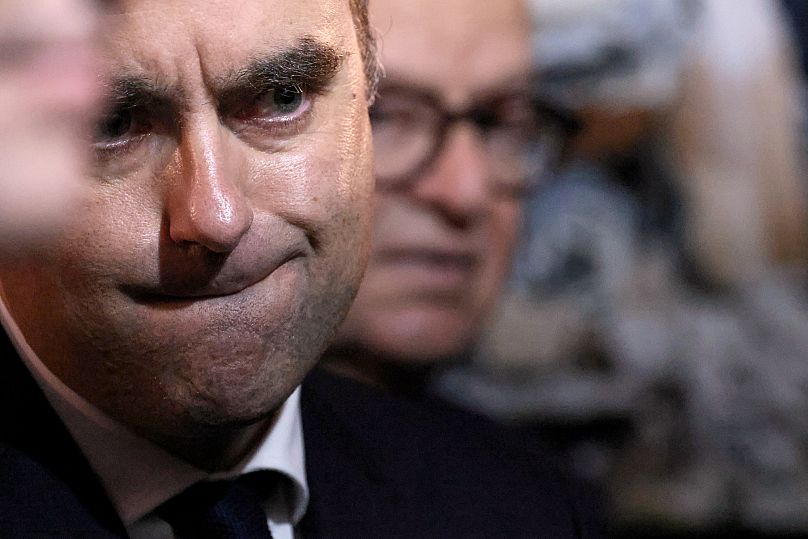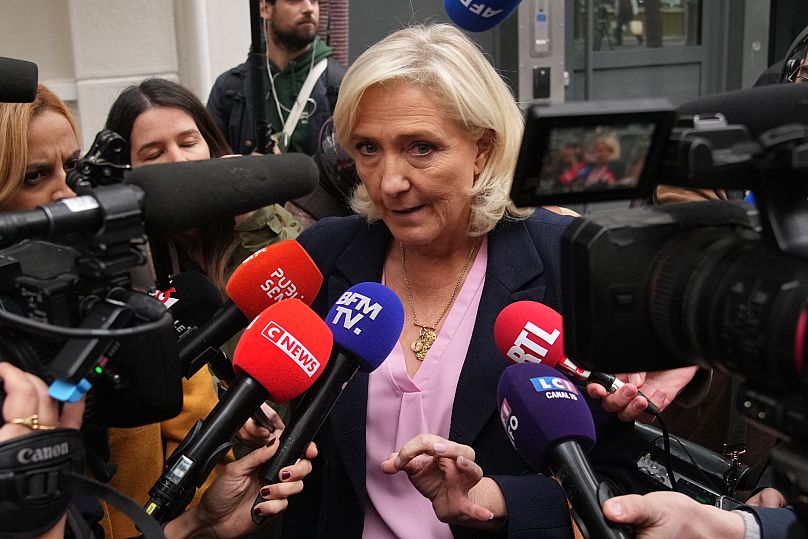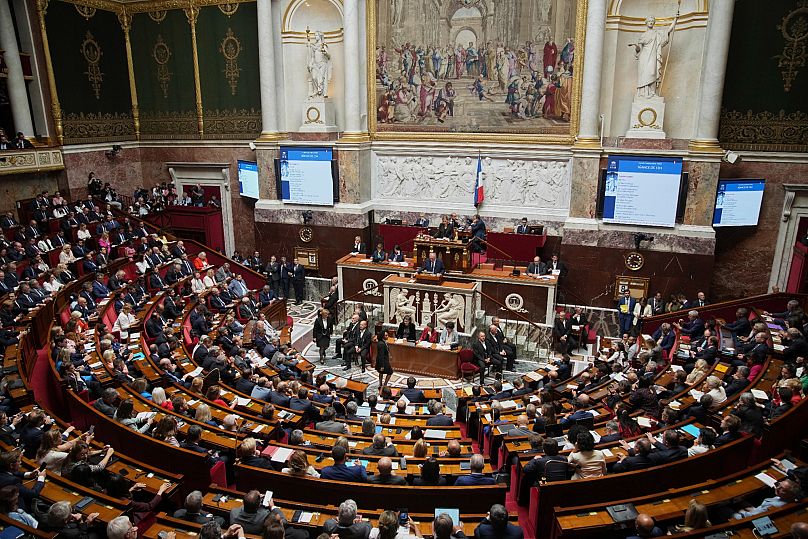As outgoing Prime Minister Sébastien Lecornu’s last-ditch 48-hour window to form a new government nears its end, France’s political class and citizens are bracing for the president’s next move.
Embattled French President Emmanuel Macron faced mounting political pressure on Tuesday, as outgoing Prime Minister Sébastien Lecornu attempts one final round of negotiations to stave off a deepening political crisis.
 ADVERTISEMENT
ADVERTISEMENT
 ADVERTISEMENT
ADVERTISEMENT
In a statement released on Tuesday afternoon, Lecornu said he had proposed to the socle commun, a loose coalition of conservatives and centrists, that discussions focus on two urgent matters: "The adoption of a budget" and "the future of New Caledonia."
He added that all parties involved had "agreed on these two priorities, with a shared desire to find a rapid solution."
Lecornu also confirmed he would meet each political party between Tuesday afternoon and Wednesday morning.
The effort marks Macron's last-ditch attempt to keep the government functioning after Lecornu's resignation on Monday, just 27 days after taking office, the shortest tenure for a French prime minister in modern history.
Within hours of stepping down, Lecornu accepted Macron's request to negotiate a new cabinet by Wednesday night. Lecornu told the president he will not return to the role even if negotiations succeed.
Opposition boycotts and renewed calls for elections
Yet key opposition figures quickly rejected Lecornu's overture. Far-right National Rally (RN) leaders Marine Le Pen and Jordan Bardella, who had attended previous consultations, declined the invitation this time.
Le Pen reiterated her call for a snap parliamentary election, calling it "necessary," while Bardella declared, "We are ready to govern."
On the other side of the political spectrum, hard-left France Unbowed (LFI) leaders Mathilde Panot and Manuel Bompard also refused to attend the meeting with the outgoing prime minister.
The latest developments underline the president's increasingly isolated position, even among his allies.
On Monday night, Gabriel Attal, Macron's former prime minister and longtime ally, expressed open frustration with the president's decision-making.
"After a succession of new premiers, it is time to try something else," Attal told broadcaster TF1. "There was the dissolution [of parliament]. Since then, there have been decisions that give the impression of a determination to maintain control."
Former PM Édouard Philippe, Macron's first head of government after his 2017 victory, also distanced himself from the president, signalling the erosion of Macron's once-powerful centrist alliance.
A French government in free fall
Lecornu's resignation came barely a day after unveiling a new 18-member Cabinet on Sunday night.
The lineup, which included many familiar faces from ousted predecessor François Bayrou’s previous government, drew swift criticism, even from Macron's allies.
Bruno Retailleau, leader of the conservative Les Républicains party and Macron's interior minister, complained about Lecornu’s choices and called an emergency meeting of his party’s senior officials.
By Monday morning, the fragile coalition had collapsed.
Lecornu’s two immediate predecessors, Bayrou and Michel Barnier, were both ousted by parliament in no-confidence votes after clashes over the country’s 2026 budget plan including controversial spending cuts.
The next prime minister will face the same daunting task: finding enough support to pass a spending bill in a deeply divided National Assembly.
No easy options
France's political gridlock has left Macron with few viable options. His opponents have suggested three possible paths: resigning, calling fresh elections or appointing a prime minister from outside his political camp.
But Macron, whose approval ratings are at a record low, has so far resisted both resignation and dissolution. The French leader insists he will serve his term through 2027.
Meanwhile, France's financial troubles are compounding the political chaos. The country's debt-to-GDP ratio remains one of the highest in the European Union, nearly double the bloc's 60% limit.
Passing a new budget is essential to prevent a government shutdown, yet the chances of doing so appear slimmer by the hour.













